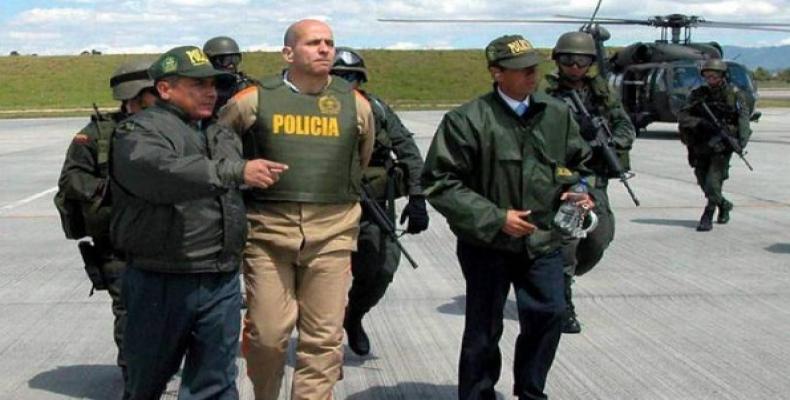Bogota, June 1 (teleSUR-RHC)-- Simon Trinidad, one of the Revolutionary Armed Forces of Colombia's most senior leaders currently held in solitary confinement in a U.S. prison, is seeking to be transferred back to Colombia to face a number of charges in his homeland.
Trinidad, who was sentenced to 60 years in prison, made the request last August via a letter to Colombian Justice Minister Yesid Reyes, arguing that it would be more feasible for him to face charges in his native Colombia rather than have officials from Colombia travel to the United States. The guerrilla leader also argued that a fair trial in the United States would not be available to him, as U.S. officials have previously denied him lawyer-client confidentiality.
The U.S. had an FBI agent present and taking notes during a private conversation between Trinidad and his lawyer, Oscar Emilio Silva Duque. According to Trinidad, Silva has also been denied a U.S. visa by the U.S. Embassy in Bogota, Colombia, on three different occasions, preventing him from traveling to meet with Trinidad.
Trinidad was extradited to the United States during the administration of far-right President Alvaro Uribe, a close ally of Washington. Uribe chose to extradite Trinidad in 2004 instead of having him face charges in Colombia. At the time of Trinidad's capture, the United States did not have any pending charges against him.
The U.S. justice system would eventually subject him to several proceedings finding him guilty for his alleged role in the kidnapping of three U.S. contractors operating in Colombia. Simon Trinidad joined the Revolutionary Armed Forces of Colombia (FARC) in 1987, rising through the ranks and eventually occupying a leadership position in the FARC guerrilla. Trinidad served as de facto foreign minister of the rebel group and before being captured in neighboring Ecuador.
Despite being imprisoned, Trinidad was named as a member of the FARC’s negotiating team at the Havana peace talks that formally started in 2012. Trinidad is in fact an experienced negotiator, having participated in an earlier peace effort between the FARC and the Colombian government from 1998 to 2002.
The FARC has said that any final peace agreement must be vetted by Trinidad, and calls for his inclusion in the peace talks have been backed by Colombia human rights groups such as the Broad Front for Peace.


